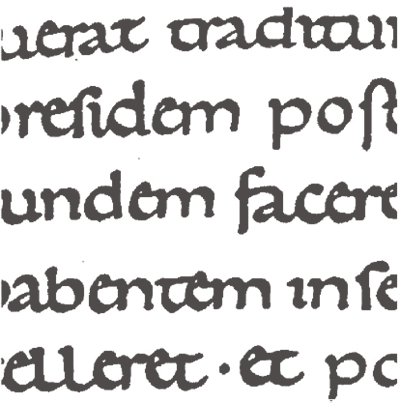Law in the cosmos
There aren’t just satellites orbiting the earth—there’s also space debris. And some countries claim rights to natural resources found on other celestial bodies, and permit the sale of plots on the moon. Some sort of legal rules must apply in outer space, so it is clear who is allowed to do what in the universe.

New Public Procurement Law: Mediation and conciliation at the Court of Arbitration at the General Counsel to the Republic of Poland—good or bad solution?
Under the proposed new Public Procurement Law, in the event of a dispute involving performance of a public contract, amicable resolution of the dispute would be handled by the Court of Arbitration at the General Counsel to the Republic of Poland. But the proposal generates legal doubts.

Draft tax guidelines: Rules for collection of withholding tax
The Ministry of Finance has published a draft of the long-awaited clarifications of the rules for collection of withholding tax and the obligations of tax remitters. The document is intended to resolve taxpayers’ doubts arising after amendment of income tax acts.

A new approach to dividends in limited-liability companies
For many companies in Poland, the 30th of June is the date set for holding their ordinary (annual) shareholders’ meeting. One of the points on the agenda should be adoption of a resolution on division of profit (or coverage of loss). The profit shown in the annual financial statement may be earmarked, among other things, to payment of a dividend to the shareholders. It seems like an opportune moment to examine the recent amendment of the regulations governing dividends in limited-liability companies.

Drug distribution: New regulations in the Pharmaceutical Law
For many years, drug distribution has been a strictly regulated business. Entities participating in the trade are licensed, the direction of permitted sales is strictly defined, and the market is subject to control by the Pharmaceutical Inspectorate. Nevertheless, the phenomenon of the “reverse drug distribution chain” still exists. Does the “anti-export” amendment of the Pharmaceutical Law have a chance of eliminating irregularities without paralysing legal trade?

Use of criminal law to combat drug distribution
On 6 June 2019, another amendment to the Pharmaceutical Law came into force. Its aim is to reduce the occurrence of non-availability of medicines. According to the authors of the changes, only more severe penalties and broader penalisation can limit the undesirable occurrence of the reverse distribution chain. However, the first comments on these changes show that the threat of penalties alone may not be enough to achieve this goal. It has been known for some time now that the inevitability of punishment is an indicator of the effectiveness of criminal policy.

The creditor’s inappropriate attitude can save the debtor
The Supreme Court has held that in exceptional cases, the creditor’s conduct in enforcement proceedings will constitute an abuse of law justifying denial of the creditor’s right to execute an order. Therefore, the creditor’s inappropriate attitude may make it impossible to enforce a claim awarded by a final court decision.

Clear path for trusted technologies in Liechtenstein
The Principality of Liechtenstein will become one of the first countries with its own act on trusted technologies, approved by the Liechtenstein parliament at the first reading on 6 June 2019.

“Phoenixing” and “Zombieing” in the Eastern European sports industry and players collective action as the only viable response
“Phoenixing” is a term coined to describe a situation in which stakeholders of an organization which becomes insolvent transfer its operations to a different entity, which continues them while ignoring the predecessor’s debts.

A contributory role in contributing. When might an error made by a representative lead to a decrease in the amount of damages due?
Properly determining the amount of damages sought for loss of health, where a party pursuing a claim for injury partly caused the loss, can be a problem even for professional representatives of such claimants. This is because this issue raises a number of grave practical concerns, addressed by the Supreme Court in a resolution of 11 April 2019 (III CZP 105/18), and also by other bodies.

Approvals: Legal limitations on conducting transactions in Poland
The condition of the Polish M&A market depends on many factors, such as the economic and political situation in the country and the legal and tax environment for businesses. But another significant element impacting the size and structure of investments in Poland is the legal restrictions on conducting transactions. They affect both share deals and asset deals.

Public procurement deadlines must be realistic
Terms of reference should set contract performance deadlines that are possible to keep for completion of the contract and individual stages. It is better to specify these periods in years, months and days than as a specific date. However, if the contracting authority set specific dates which became impossible to meet after submission of the bids, it should modify them accordingly when signing the contract, reflecting the amount of time taken into account by contractors at the stage of submission of bids.
